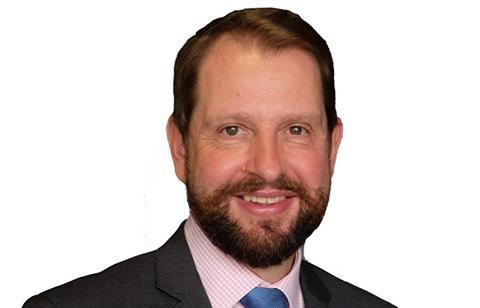
If you asked most employers what their biggest business priorities are for this year, I am confident that ‘spending more time on the pension scheme’ would not feature very highly.
In fact, Aon’s UK DC pension survey 2020, published in February 2020, showed that 35% of employers with their own trust-based arrangements and 20% of those with contract-based or group personal pension (GPP) plans said that they are looking to move to a master trust. Of these, 54% with their own trust want to move due to the cost, time and resource pressures of running their own plan.
Defined contribution (DC) schemes of all types are rapidly increasing in asset size and are forming an ever-more important part of individuals’ retirement savings. It is therefore vital that DC pension arrangements meet employees’ needs. However, employers have so many other business priorities, there may not be enough time or resource to give pensions the attention they need.
Delegating some or all of the day-to-day running of a pension scheme is one way to find a balance between good pension governance and corporate time commitment. Employers can reduce resource-heavy burdens of regulation, administration and investment; areas identified by respondents to Aon’s survey as those where they feel they spend too much time. Instead, they can focus on high-impact activities such as creating effective, well-targeted communications.
Achieving the right balance between time commitment and offering a good-quality scheme is fuelling interest in master trusts, which can offer the same, or better, standard of governance and delivery than many employers’ current arrangements, but with less time and resource from the business. Of trust-based schemes that are considering a move to master trust in the next five years, 14% said they expect it to offer better outcomes for members. That number increases to 47% among employers using GPPs which are considering this change.
The decision to move employees’ pension arrangements requires careful consideration and clear objectives. Some key points to consider include:
Will the new arrangement deliver value for members?
Delivering value for members remains a priority for employers, with 76% of respondents to Aon’s survey saying that this is part of their scheme’s business plan.
A clear definition of value and how this will be measured is, therefore, crucial, but around a third of schemes do not track progress against their objectives. A change of governance structure can enable employers to revise and reset their value for members’ objectives and plan how to measure and deliver them.
Can members achieve good outcomes?
Many schemes’ definition of good outcomes is still focused on contribution rates and how these compare to their competitors. But it is more important to help employees understand what they will need for an adequate standard of living in retirement and how they can achieve it.
When switching to a new arrangement such as a master trust, it is important to ask how members will be supported in defining and reaching their retirement ambitions.
Will it benefit workforce planning?
If employees are confident that they will be able to retire and know when this will be, employers can predict future workforce needs and create succession strategies. However, only 25% of respondents said that the sponsoring employer had considered how pension retirement outcomes might affect their future workforce planning.
Delegating service delivery to a master trust can free up time to focus on how the DC pension and associated benefits support employees’ in transitioning from working life to retirement, at a time that suits both the individual and the business.
Just under two-thirds (65%) of survey participants said they would like to spend more time communicating with employees and 42% wanted to spend more time on strategy. Delegating pension scheme delivery to a master trust could help employers win back the time they need to achieve that.
Tony Pugh is head of DC solutions at Aon
















